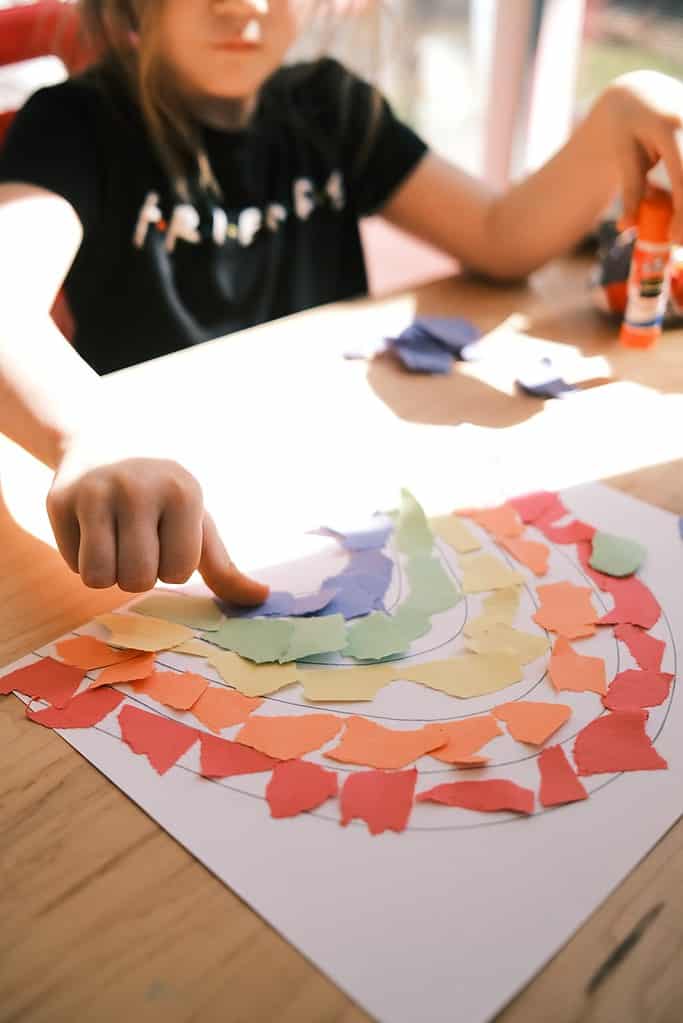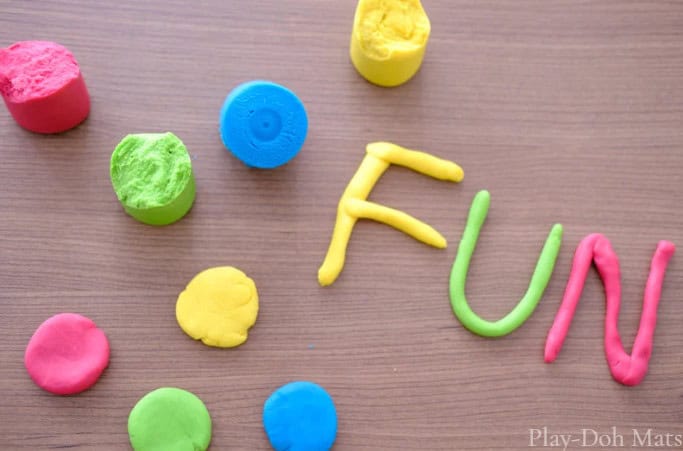How Can I Improve My Child’s Brain Power?, Smart Parents Ask

One of the top trending topics in health recently is brain health. Parents want to know, “How can I improve my child’s brain power?” They want to know how to maximize their children’s development and prevent later issues with memory, executive function skills, and overall problem-solving. They want to know how to improve their kids’ grades and school performance.

This is especially important when children are young and their brains are developing. There are a few key things to pay attention to when it comes to answering the question of how can I improve my child’s brain power.
If you implement these brain exercises, activities, and other suggestions, you will see a difference. It won’t appear right away, but you will begin to see a calmer, focused child with higher grades and better school performance.
So grab a pen and paper and get ready to take some notes! 😉
How can I improve my child’s brain power?
First of all, let’s discuss some of the reasons you might ask, how can I improve my child’s brain power. Maybe your child is struggling in school, and you want to know how to help them at home. Or, if your child is still very young, perhaps you are focused on giving them the best opportunity at success by doing all you can to promote optimal development now. Another possibility is that your child has displayed some attentional issues or memory issues and you want to take care of that now before it gets worse.
It’s also a good idea to stop here and think about what we mean by brain power. Are we talking about memory only or are we talking about something broader? Brain power isn’t just about memory. It’s also about creativity, problem solving and reasoning ability (age appropriate, of course!), and other key skills of Bloom’s Taxonomy. If we focus too much on improving memory, our reasons for wanting to know how can I improve my child’s brain power become more about doing well on tests, not about our children’s development. It’s a little bit like the sight words vs phonics debate. It’s really not about memory versus problem-solving skills. It’s about developing both in a way that optimizes development and learning.
Whatever your reasons, understanding how can I improve my child’s brain power will always benefit your child! So, let’s get into it.
Dietary Suggestions
Before you even think about memory games or other brain exercises, your child’s brain needs to be getting the right fuel! To build a healthy nervous system and brain, your child needs healthy fats, antioxidant fruits and veggies, and good protein sources. According to Dr. Axe, fifteen brain foods include fish, avocados, berries, bone broth, egg yolks, and certain herbs and spices, among other foods.
It’s really important to avoid convenience foods that many kids like, such as cheese curls and corn chips, fruit snacks, candy, crackers, cookies, and other empty foods. Keep your home stocked with healthy snacks instead. Peanut butter and apples, berries and naturally sweetened yogurt, grass-fed meat sticks, hard boiled eggs…
So, that is the number one thing for how can I improve my child’s brain power. You need to lay a solid nutritional foundation before doing anything else. Better nutrition equals better focus, better memory, better development!
How can I improve my child’s brain power with exercises?
I am going to differentiate between exercises and playful activities. Exercises are intentional workouts for the brain that really have no other purpose. Playful activities, on the other hand, are fun in and of themselves and they just happen to also give the brain a workout. First, let’s look at some exercises.
Mindfulness for Kids
A great brain exercise for increasing concentration and focus is mindfulness. This is not only great for focus and concentration but comes with many other benefits as well. It is also easy to do and requires no equipment.
Mindfulness is about living in the moment, so you can teach your kids to focus on their current feelings and what is happening right then. Show them the importance of being in the moment, focusing on their thoughts and feelings, and really experiencing all of their sensations, from head to toe. Doing more mindfulness activities also increases emotional intelligence, which is a greater predictor of success than IQ.
A Simple Memory Exercise
With memory, you want to consider the difference between short-term memory and long-term memory. Short-term memory is easy to start with and includes a few basic practices. For example, you can have them come up with a list of any 5-10 words, write them down, and take a moment to memorize them.
Flip the paper over or take it away, and give them a new piece of paper. See if they can remember the words they chose and write them down.
You can also do a similar activity with objects. Have a tray of different objects found around the house, tell your child to focus and remember what they are, then take the tray away. Have your child write down what they remember from the tray.
Figure Eights
This is an exercise that improves communication between the two halves of the brain, which is very important to learning and proper brain development. Basically, your child will be making figure eights in the air with a finger, being careful to make a large eight in front of them, not on one side. They need to do it repeatedly, so pretending they are chasing a butterfly might make it less boring. Be sure they switch hands!
They could also lie on the floor and do it with each leg. They would start with one leg straight up in the air. Then, move the leg in a large circle, first going across the body, then around. Be careful that their whole body isn’t moving off the floor. Here’s a video that shows several exercises.
Narration
Helpful Books
There are many books out there with dozens of activities you can do at home with your young child. Here are just a few. And, don’t forget about rhyming books, sensory books, and other reading materials that help kids have fun with language and develop a love for reading.
How can I improve my child’s brain power with activities and play?
These activities are just plain fun to do, and also happen to help you know how can I improve my child’s brain power. Check these out!
Which toe am I thinking about?
Another exercise is going to help with the connection between their brain and body. It shows kids how to exercise both the brain and physical movements at the same time, for proper coordination.
One way to do this is by having them first think of any body part first, then move that body part. They can picture their hand, then move their hand. Think about a toe, then try wiggling it. This allows them to understand between a thought and a movement, and how they are connected.
Scavenger Hunts
Another answer to how can I improve my child’s brain power is to create scavenger hunts. This is one of my personal favorites. It can be as simple as creating a list of objects to find out in nature or complex as creating clues to hidden objects. Either way, it builds critical thinking skills. You can get up to 75 free printable scavenger hunts or purchase them. Here are some for children as young as age 4.
Now you build it.
This is a fun building activity that requires wood blocks, Legos, Mega Bloks, or a similar open-ended toy. Not only will it build brain power, but it will build your relationship with your child! Here’s what you do.
You build a simple tower, house, castle, whatever. Then, you ask them to build the exact same one, a mirror image. Keep it easy at first, with only three blocks. When they are successful at mirroring that, then add one or two blocks to your construction. Keep adding complexity. This is a key skill that builds spatial thinking, one of the key factors in creativity.
Creative play
This doesn’t sound too techy, but open-ended pretend play is one of the best ways to encourage proper brain development. That means no tablets, no battery-operated toys, no computer games, no television. Just old-fashioned blocks, play silks, empty boxes, and other “passive” toys. Play is kids’ work and it is essential. Let them be bored, too. Don’t feel like you need to fill up their time or entertain them. Play is the ultimate tool for encouraging optimal brain development.
Creative play isn’t always toy oriented, though. Sometimes, it can be using their imagination in other ways that build brain power. What about imaginative storytelling? Check out some picture prompts for creative writing that can spark some creative mind play or even a new game!
Brain Games
Want to do some brain work together as a family? Check out these games. Your child won’t even know they’re using different aspects of their cognitive power and you’ll build relationships, too.
Other things to consider about how can I improve my child’s brain power
Of course, these ideas are just the tip of the iceberg. There are dozens of puzzle books, logic games, pocket puzzles, music learning apps (ever heard of the famous Baby Mozart videos?), and other tools that get the noggin active. The absolute worst thing for developing brains is passively watching something on your phone or other device. I know you need a break and it’s easy. Send them outside instead!
And, I do need to add here that if you notice that your child seems to be struggling with learning language, picking up on social cues and body language, engaging in pretend play, or anything else that seems a bit delayed compared to other kids, let your pediatrician know. That way, your child can get early childhood interventions, such as speech therapy, that can make a huge difference in your child’s development. Don’t wait!


















Each of these activities brings a great way to help with improving brain power. Thank you for sharing.